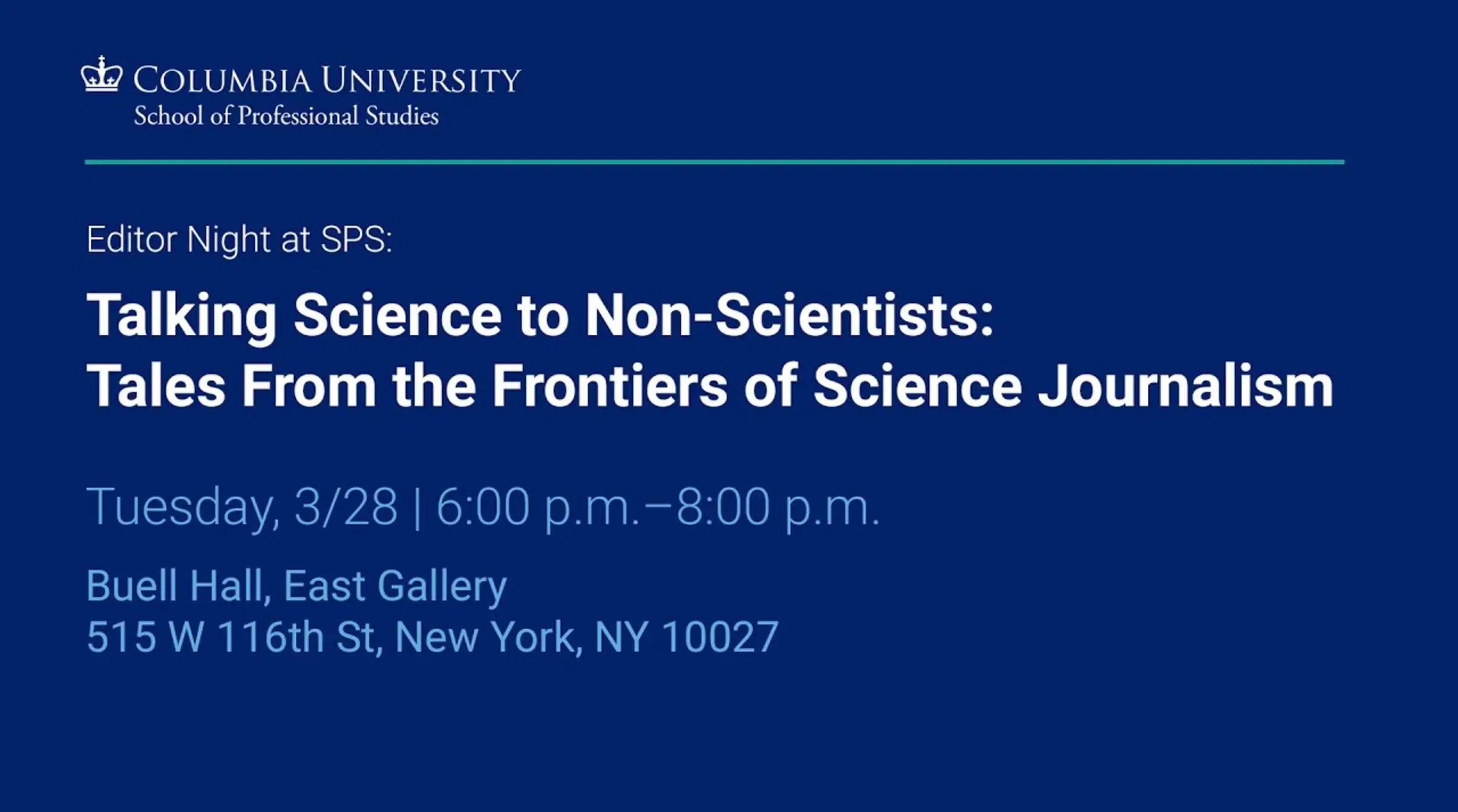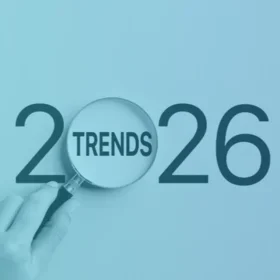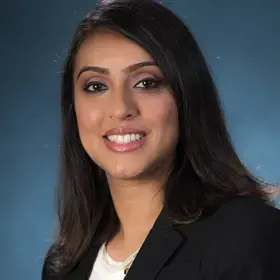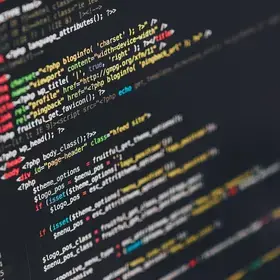On March 28, the School of Professional Studies held its first Editors Night since the COVID-19 pandemic, bringing together eight journalists to discuss the importance and future of science journalism. The event was hosted by Claudia Dreifus, lecturer in the M.S. in Sustainability Management program. The eight editors:
- Cornelia Dean, former editor, Science Times, The New York Times; author, Making Sense of Science
- Sarah Lewin Frasier, assistant news editor, Scientific American
- Sarah Graham, senior editor, Climate Desk, The New York Times
- Regina Mahone, senior editor, The Nation
- John Rennie, deputy editor, Quanta Magazine, Simons Foundation
- Eric Roston, climate editor, Bloomberg News
- Michael Roston, senior editor, Science Times, The New York Times
- John Timmer, senior science editor, Ars Technica
The editors discussed recent challenges including the COVID-19 pandemic, racial inequality, and climate change.
Claudia Dreifus on the program, which she established in the late ’90s: “Journalism is about knowing people. I wanted to put something together for my class to give them real-world contacts in journalism, science, and sustainability. There are a lot of students who are able to call editors they met at Editors Night and say, ‘Hey, I met you at Professor Dreifus’s class.’ That’s what I hope for!
“I get a lot of positive feedback from the students and from the editors, who really enjoy meeting the students, talking with them, and learning about their passions or concerns. When I was a student in the early ’60s at NYU, I had a professor who was an Irish diplomat and literary figure. He used to invite students over to his house to meet other literary figures, and it changed my life in a lot of ways. He exposed me to fantastic people I wouldn’t have met otherwise. I try to do the same for my students!”
Find the full recording of the panel event here. Below are some insights from the panelists:
John Rennie
“At least one thing that all of us are very aware of now, having seen how things have played out with the pandemic: Providing the right context for information is extremely important. That context isn’t just limited to the scientific information itself, but you must consider how information is communicated to people in different cultural sets or political orientations.”
Cornelia Dean
“When you are going to editors and you are hoping that they are going to commission you to do something, you have to present yourself as someone who is going to solve a problem that they have. Maybe they don’t even know what the problem is … but you’ve seen it!”
Michael Roston
“Think of your career as a team sport: You shouldn’t just be out there alone. You should be out there in consultation with peers. If people at a horizontal level have some success, some of their success might be relevant to you finding your own.”
Sarah Lewin Frasier
“Write everywhere you can find, especially where you can be edited—whether that’s your lab’s blog, a class publication, or anything. Eventually you are going to want to get targeted clips in high-profile magazines, but at first you just want to be showing off your work as best as possible. Talking as someone who just finished reading through 144 applications for summer internships, I rely a lot on clips, and I don’t really care where they come from if they are good and tell a great story! And the more places you can find to do that as a student, the better."
About the Program
The Columbia University M.S. in Sustainability Management provides students cutting-edge policy and management tools they can use to help public and private organizations and governments address environmental impacts and risks, pollution control, and remediation to achieve sustainability. The program is customized for working professionals and is offered as both a full- and part-time course of study.



